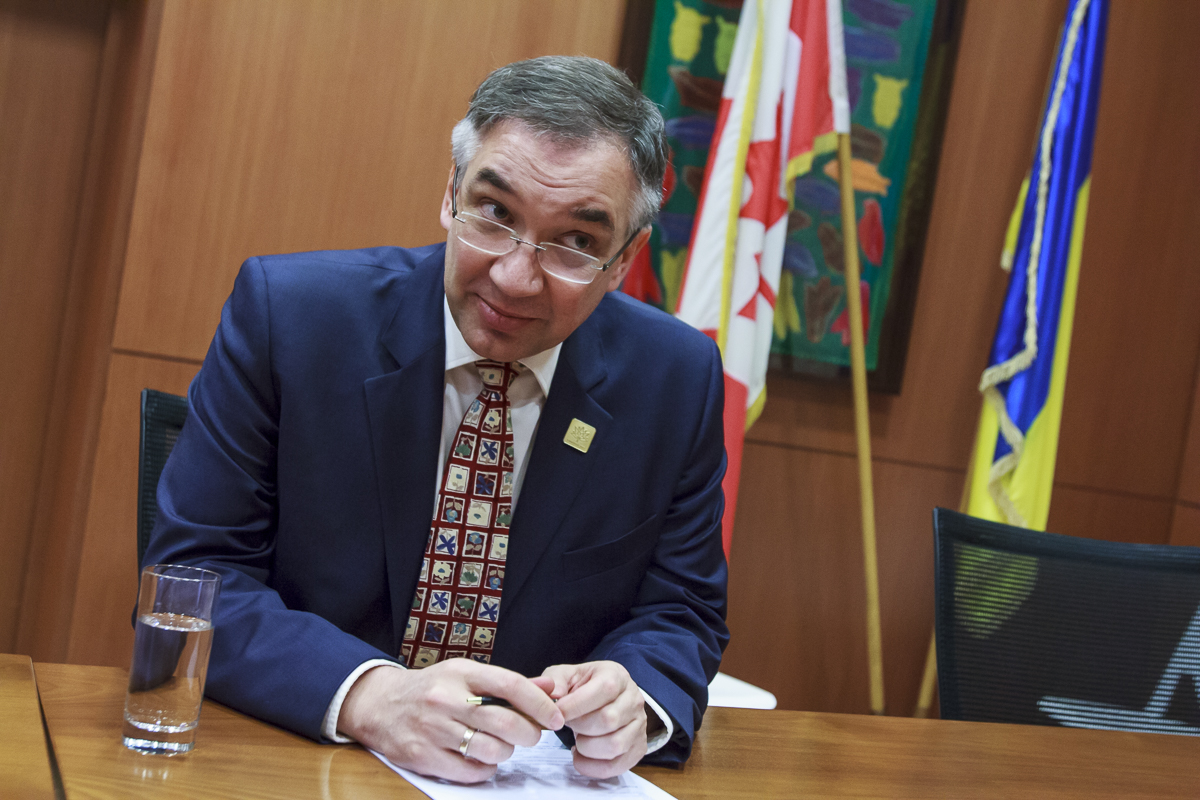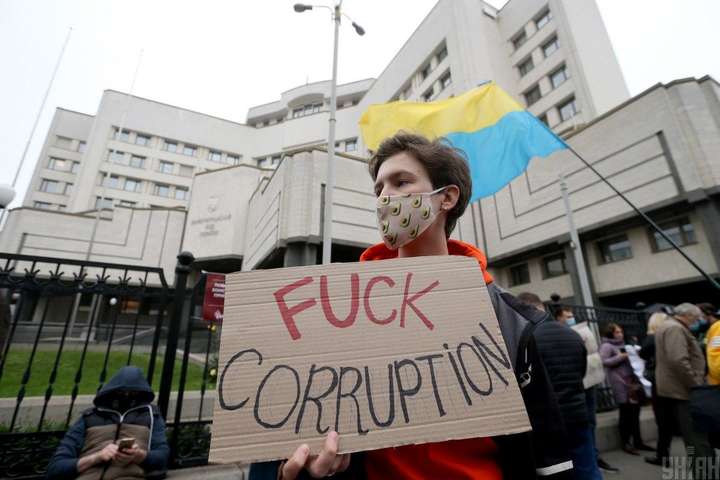On 6 March 2019, the High Qualification Commission of Judges (HQCJ) announced the results of the competition to the High Anti-Corruption Court (HAC) and to the Supreme Court (SC). 8 candidates whom civil society organizations had determined unworthy of this position a few months ago were among the winners of the HAC. The Public Integrity Council, a body created of civil society members to assist the HQCJ in assessing the integrity and professional ethics of judges, found 16 winners of the competition to the Supreme Court to have a sleazy reputation. Why the competition to the HAC is a success and to the Supreme Court is a failure will be explained lower.
It was the first time in the history of Ukraine that international experts had assessed judicial candidates. The Public Council of International Experts (PCIE) included well-known experts who worked as prosecutors or judges themselves and pressed charges/considered cases of top corruption in Canada, Denmark, Great Britain, Lithuania, and Macedonia.

This Council had a right to ban a candidate if he or she does not show a sufficient level of proficiency or integrity. The PCIE members applied the highest standard of proof – candidates were obliged to refute all reasonable doubts and to prove that they are worthy to become HAC judges. 49 candidates tried to do so at the joint meetings of the PCIE and the HQCJ, and 42 of them failed.
Four civil society organizations (DEJURE Foundation, Anti-Corruption Action Centre, Transparency International, and Automaidan) informed that they earlier had doubts about eight of the winners. However, three of these candidates (Chorna, Voronko, and Bilous) were interviewed by international experts who decided that their integrity issues had been lifted. Other candidates provided their explanations in writing.
In total, international experts banned 37% of candidates from the competition based on a reasonable doubt about the level of their proficiency or integrity. The HQCJ claimed that this result was their joint effort.

On the contrary, in the Supreme Court competition that took place at the same time, the HQCJ overruled 16 out 31 negative opinions of the Public Integrity Council (PIC). The PIC, a national institution composed of civic activists, attorneys, journalists (all working as volunteers), does not have an absolute veto right as the PCIE does. Even if the PIC finds a candidate to be dishonest, he or she can still be appointed if the majority of HQCJ members vote for such a decision.
The dubious candidates whom the HQCJ helped remain in the competition include three members of another judicial governance body, the High Council of Justice (HCJ) – Ihor Benedysiuk, Natalia Volkovytska, Tetiana Malashenkova.
The HCJ has to ensure the independence of judges and assess their compliance with judicial ethics. As members of the HCJ, the three candidates made zero efforts to investigate facts of political pressure on judges during the Euromaidan Revolution, leading to courts participating in the government's repression of activists, and to bring the so-called Maidan judges who abused the law to repress activists, to justice.
Moreover, they may have broken the law themselves.
For example, Ihor Benedysiuk illegally accepted a ceremonial weapon from the President. The Head of the HCJ was many times questioned by the journalists about his Russian citizenship, but never replied - dual citizenship is not allowed in Ukraine.
All the candidates supported issuing a reprimand to judge Vitaliy Radchenko, who issued a permit to conduct a search on the office of the odious Kyiv District Administrative Court head Pavlo Vovk, suspected of corruption and implementing orders from the government. Many activists and politicians believed this was an attempt of exerting political pressure against a judge.
Other winners of the competition to the Supreme Court also violated human rights, made politically motivated decisions, had close ties to high-level politicians.
Why the competition to the Supreme Court is so important for the Anti-Corruption reform
The Criminal Cassation Court within the Supreme Court will consider the cases of the top-corruption as the last instance.
A year ago, five dubious candidates were already appointed to the Criminal Cassation Court after the first competition to the Supreme Court. Among them are Viacheslav Nastavniy and Serhiy Slynko, who made politically motivated decisions in the cases of Pavlichenko and Lutsenko. Stanislav Kravchenko who was accused by the PIC of lying in the declaration became the Head of the court.
As a result of the second competition to the Supreme Court, two more dubious candidates may become judges of the Criminal Cassation Court.
- Svitlana Vus, an ex-judge of the Supreme Court of Ukraine who did not declare her real estate and adopted decisions violating human rights.
- Serhiy Yeremeichuk, a judge of the appeal court from Rivne who couldn’t explain the origin of his assets and was accused in biased/prejudice consideration of cases.
Is there a chance to prevent the appointment of these candidates?

You might be surprised to learn that the High Council of Justice (HCJ) is the institution that has a final say in the judicial appointment process. After the competition is over, it still has to review the profiles of each candidate and decide if he or she should be appointed. According to the Law “On Judiciary and status of Judges” the HCJ may reject a candidate who won a competition based on 2 reasons:
- the existence of reasonable doubt as to whether the candidate meets the criteria of integrity or professional ethics or other circumstances that may adversely affect public confidence in the judiciary in connection with such appointment;
- violation of the procedure for appointment as a judge determined by law.
The plenary sessions of the HCJ on the candidates will be held on March 18-20. The HCJ should consider 117 candidates (39 to the HAC and 78 to the SC) over three days. This means that the HCJ will spend at most 12.5 minutes for each candidate.
For example, last year the HCJ spent eight days to interview 120 candidates to the Supreme Court and only two were not recommended to the President. The HCJ also ignored 29 negative opinions of the PIC saying they were already assessed by the HQCJ. So, the HCJ would assess only new information.
This means that the HCJ most probably will recommend appointing all the candidates, including its members.
By the way, the law does not prohibit HCJ members from taking part in the competition, but it also does not propose any solution for resolving ethical issues. Of course members of the HCJ who won in the competition to the SC will abstain from the voting to avoid conflict of interest; however, their colleagues will still need to vote for them.
As we saw earlier, the HCJ members are not just in more favorable positions due to their status, they also have a possibility to exclude competitors from the race through disciplinary cases.

Judge Larysa Holnyk, who is known in Ukraine and abroad as a whistleblower-judge, was reprimanded by the HCJ just before the competition to the HAC started. The imposition of a disciplinary penalty prevented Holnyk from taking part in the contest and becoming a HAC judge. Recently, the Supreme Court found this decision of the HCJ illegal.
Some members of the HCJ might have other conflicts of interest. In this case, they should refuse to participate in the consideration of a matter, to not cast doubts about their impartiality.
Is banning dubious candidates enough for a good Anti-Corruption Court?
In order to ensure the independence of the Higher Anti-Corruption Court, it is also necessary to choose a worthy head of the apparatus and employees of the court apparatus. Currently, the provisional head of the apparatus of this court is Oleksiy Zhukov, an ex-prosecutor of the Prosecutor General’s Office who has ambivalent political ties. As the competition for the permanent office of the head of the court apparatus was not yet announced, the risk of Zhukov being transferred to the post of permanent head of the apparatus of the anti-corruption court without any competition remains.
As well, the HCJ might still pressure the Anti-corruption court judges through the disciplinary cases like they did with Holnyk.
The participation of international experts with strong veto powers contributed to the Anti-corruption court being completed successfully. However, this success might be negated by the composition of the Criminal Cassation Court of the Supreme Court that will consider cases of top corruption as a third instance, manipulations from the apparatus of the HAC, or due to pressure on the judges through disciplinary cases.

Read also:
- The Court – Euromaidan Press documentary on the creation of the Anti-Corruption Court
- Society guarding fairness of Ukraine’s Supreme Court: 78 new judges to be selected next months
- 5 months after legal start of Anti-Corruption Court, how close is Ukraine to prosecuting its top-corrupts?
- Anti-Corruption Court in Ukraine: so far, so good, but dangers lie ahead
- Saving Ukraine’s Anti-Corruption Court: international experts filter candidates, facing roadblocks from old system
- Civic watchdog in Ukraine: we were used to legitimize dishonest Supreme Court appointments





